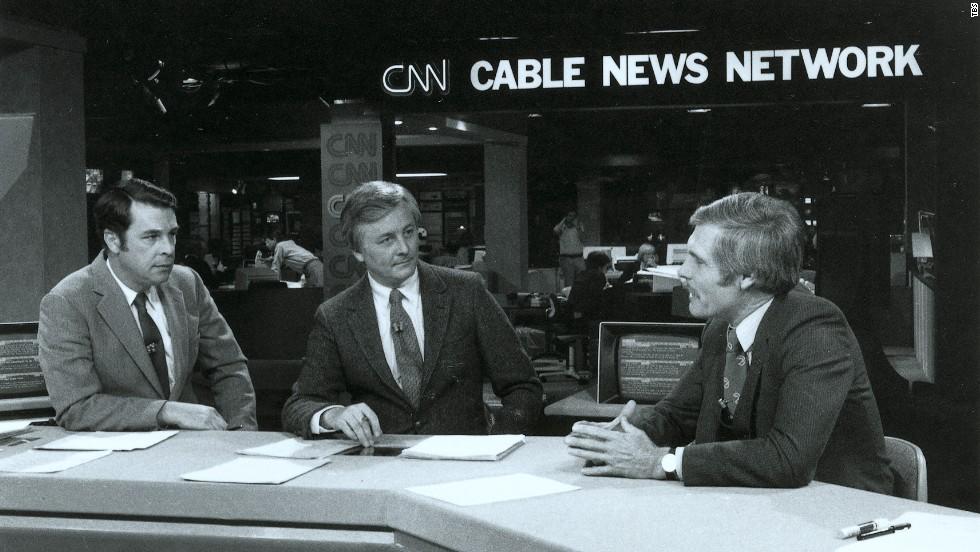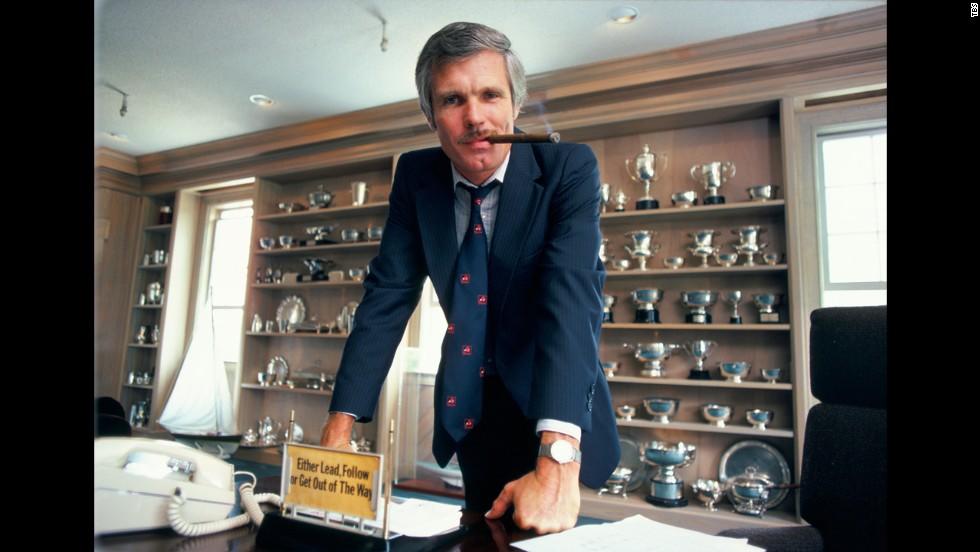Section Branding
Header Content
Decades After CNN, Ted Turner Still Inspires Journalists
Primary Content
Before there were cellphone push alerts and before Americans turned to social media for news updates, Ted Turner started the world’s first 24-hour all news television channel, CNN, in 1980.
When CNN first broadcast from Atlanta that year on June 1, Jimmy Carter still occupied the White House and Oprah Winfrey was about five years away from becoming a household name.
But the news network was far from what it is today.
RELATED:
- Ted Turner Opens Up About Having Lewy Body Dementia
- Rethinking Evangelicals And A Visit With Ted Turner's Daughter
- CNN Beefs Up Investigative Reporting
“Remember, at that time CNN didn’t have enough content (for) 24-hour news,” CNN’s Chief of Protocol Affairs Sonia Tucker said. “That’s why Turner pioneered the program World Report.”
World Report was a collection of television stories produced by international journalists in their home countries. It was a chance for international reporters to report the news as they saw it.
“He allowed journalists to send stories unedited and we would program it on World Report and air it on CNN and international,” Tucker said.
This helped make the world a little bit smaller. Reporters could share their stories, whether from the middle of a war, a political rally or a religious festival, reporters broadcast the faces, voices, struggles and triumphs of their communities.
But almost four decades later, CNN’s partnership with international journalists is more formal than collecting mail bags of video tapes. Inspired by World Report, in 1989 Turner created a scholastic program aimed to train and develop journalists outside the U.S.
Each year, five cohorts of international reporters, editors and media executives travel to Atlanta and spend two weeks immersed in CNN’s operations and newsrooms, learning the multi-platform operations of the company.
Giacomo Segantini, a foreign desk editor with TG “Uno” in Italy, said he was struck by Turner’s brand of unvarnished truth-telling.
“In Europe people always play the intellectual card,” Segantini said. “They’re always doing philosophy. He’s a legend and he just said, 'Do your best; find the truth to tell the truth,' that’s it.”
Finding the truth also resonated with Tatjana Sekulic, who was a child during the Bosnian War in the 1990s.
Sekulic recalled watching CNN report on the war that she was living through.
“For us in Bosnia-Herzogovna during the war, CNN was our window on the world actually,” she said.
The company’s fellowship program is marking its 30-year anniversary. In May, fellows got a chance to meet Ted Turner and pepper him with questions.
As he answered their questions, Turner kept returning to the motivating belief on which he founded CNN: Give people information and they will use it to make the world a better place.



